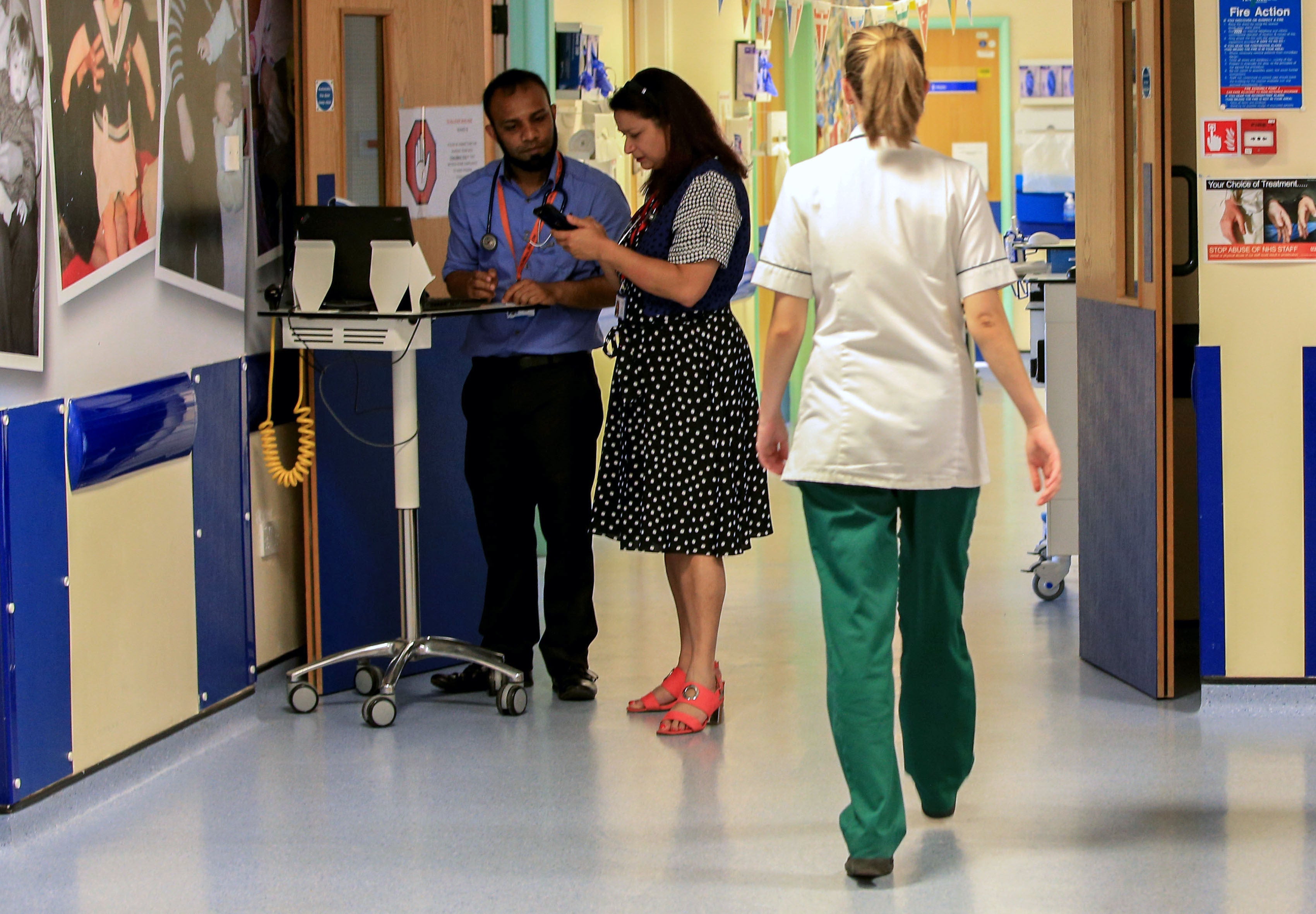NHS waiting list hits record 6.7 million as backlog rises by 100,000
‘The intense pressure on NHS and social care services has barely featured in the Conservative party leadership race’ warns think tank

Your support helps us to tell the story
From reproductive rights to climate change to Big Tech, The Independent is on the ground when the story is developing. Whether it's investigating the financials of Elon Musk's pro-Trump PAC or producing our latest documentary, 'The A Word', which shines a light on the American women fighting for reproductive rights, we know how important it is to parse out the facts from the messaging.
At such a critical moment in US history, we need reporters on the ground. Your donation allows us to keep sending journalists to speak to both sides of the story.
The Independent is trusted by Americans across the entire political spectrum. And unlike many other quality news outlets, we choose not to lock Americans out of our reporting and analysis with paywalls. We believe quality journalism should be available to everyone, paid for by those who can afford it.
Your support makes all the difference.The number of people waiting for NHS care has hit a record 6.73 million, as A&Es report their worst ever performance, new data shows.
The NHS’ backlog in care grew by 100,000 in June, up from 6.6 million, while the number of people waiting more than a year for treatment stood at 355,774, up from 331,623 the previous month.
Meanwhile, a record 29,317 people had to wait more than 12 hours in A&E departments in England in July after a decision was made to admit them, NHS figures show.
However, this is far lower than internal NHS figures obtained by The Independent this month revealing at least 50,000 patients waited for 12 hours after arriving at A&E in the first two weeks of July.
A total of 7 per cent of patients in England were seen within four hours at A&Es last month, down from 72.1 per cent in May and the worst performance on record. The national target is for 95 per cent of patients to be seen within this time but this has not been met since 2015.
As the ambulance sector reported huge pressures last month, official figures show services in England took an average of 59 minutes and seven seconds to respond to emergency calls such as burns, epilepsy and strokes.
This is up from 51 minutes and 38 seconds in June and is well above the target of 18 minutes. It is just short of the longest response time on record for this category of incidents, which is one hour, one minute and five seconds, set in March this year.
Response times to category one calls, which are the most urgent, fell to 9 minutes 35 seconds, against a target of 7 minutes however data shows the NHS received the highest ever level of category one calls last month.
The A&E and ambulance performance data comes as hospitals continued to struggle to discharge patients, with an average of 12,900 patients a day stuck in a hospital in July, up 11 per cent from the month before.
Commenting on the latest NHS performance figures, Richard Murray, chief executive of think tank The King’s Fund said: “Despite record high temperatures outside, today’s NHS figures are more like those of a health service stuck in the depths of a particularly dire winter.
“The intense pressure on NHS and social care services has barely featured in the Conservative party leadership race, yet the new prime minister will inherit a health and care system in a state of steady crisis. Not long after Liz Truss or Rishi Sunak enters 10 Downing Street, winter will really start to bite and without urgent action, we can expect ambulance delays to get even longer and more and more people to be stuck waiting in over-crowded A&E departments.”
As waiting lists soared, the NHS recorded the lowest ever performance for the number of people seen within two months following a referral for cancer treatment in June, with just 59 per cent of patients, 8,523, seen within this timeframe.
NHS England figures show 229,093 urgent cancer referrals were made by GPs in England in June. This is down from 242,691 referrals in May, and also down slightly from 230,110 in June 2021, though still above the 194,047 reported in the non-pandemic month of June 2019.
The proportion of patients in England seeing a specialist within two weeks in May was 78 per cent down from 88 per cent in May, while 70 per cent of patients urgently referred for suspected cancer were diagnosed or had cancer ruled out within 28 days, down slightly from 71 per cent the previous month.
Minesh Patel, head of policy at Macmillan Cancer Support, said: “Today’s data illustrates the huge strain the cancer care system is still under, with many people anxiously waiting far too long to receive results and start treatment that could improve their quality of care and save lives. It’s vital that amongst the recent confusion and chaos at Westminster, cancer doesn’t get side-lined once again.”
The news comes as the NHS announced earlier this week it had almost eliminated its backlog of patients waiting for more than two years this month.
Professor Sir Stephen Powis, NHS national medical director, said: “Today’s figures show the immense pressure our emergency services are under with more of the most serious ambulance callouts than the NHS has ever seen before, at levels more than a third higher than pre-pandemic.
“Recognising the pressure on urgent and emergency care services, we are working on plans to increase capacity and reduce call times ahead of winter in addition to our new contract with St John to provide extra support as needed.
“While the total backlog will continue to increase for some time, by managing to virtually eliminate two-year waits we are turning a corner in tackling Covid’s impact on elective care and it is welcome news that in today’s figures we can also see a continued fall in the numbers waiting more than 18 months.”




Join our commenting forum
Join thought-provoking conversations, follow other Independent readers and see their replies
Comments